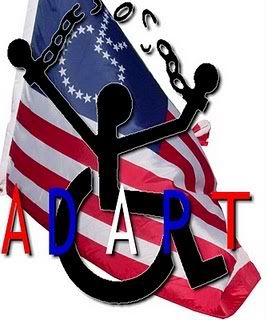Thank you Captain Obvious... below are 6 statistics from a national survey commissioned by the Canadian Medical Association. From the Ottawa Citizen: Many Say Mental Illness is a Cop-Out for Bad Behaviour (which I found through media dis&dat). I just had to comment.
- Just half [of the survey respondents] would tell friends or co-workers they have a family member suffering from a mental illness, as opposed to 72 percent who would share a diagnosis of cancer
- One in four (27 percent) said they would be fearful being around someone with a serious mental illness
- Nearly half (46 percent) agreed that “we call some things mental illness because it gives some people an excuse for poor behaviour and personal failings.”
- Two in five (42 percent) aren’t certain they would socialize with a friend with a mental illness
- 55 percent said they would be unlikely to marry someone with a mental illness
- Most wouldn’t hire a lawyer, someone to teach or take care of their child, a financial adviser, a doctor or a landscaper who has a mental illness.
I'm going to graduate soon and I need to start looking for jobs. Conventional wisdom tells me not to tell anyone. My g-d I'm going to go into the human services and "most wouldn’t hire a lawyer, someone to teach or take care of their child, a financial adviser, a doctor or a landscaper who has a mental illness." LANDSCAPER??? Just noticed that one. C'mon people *shakes head in disbelief* Most people wouldn't hire a spaz either. The unemployment rate of PWDs age 16-65 in the US who can and want to work has remained steady for years at 70%. That of course is not counting underemployment. Now it is much worse. to have the stigma of a mental "illness" looming over me along with the inherent ableism associated with my visible cripdom, that combination is probably the kiss of death. If I work for an independent living center of course they are going to know. I don't think they'd be afraid. Anywhere else? Ummm......
"[T]here is ... an invisible army of people walking to work in the office towers ... who themselves have also experienced some form of mental illness and substance abuse, who have recovered, who are back in the workforce, who are back with their families ... But the message is very clear from this survey: They’re not going to talk about it. They’re not going to disclose. And they’re not going to disclose as long as there is a culture of shame, secrecy and stigma.”
Of course they're not. "One in four (27 percent) said they would be fearful being around someone with a serious mental illness ... Two in five (42 percent) aren’t certain they would socialize with a friend with a mental illness." If people won't even socialize with us, if they avoid us like the plague, they sure as hell aren't going to hire us. Does my BP impact my life enough to be considered serious? I don't know, but either way, this puts a huge weight on my shoulders-- trying to hide something so big. I don't know if I can do it. It's just too much for me. But I can't tell people. I just can't. I don't live in Canada, but we don't do that down here either. Honestly, I'd love it if I could just shout it from the rooftops. "I'm a 'crazy' cripple!!!!" I don't think that would go over well. There goes any job lead down the toilet. Or how about this for an opening line when I go out on a date again: "Hi, I'm Cheryl and I'm BP, I walk like crap and my eyes suck. Nice to meet you." HA HA!!! No...
I'm going to go to social work school one day. Really I am. After however long it takes to tighten those lose screws in my head. I couldn't get through the coursework now, and I want to go into clinical SW, not administrative. I'd have to see clients whose issues are just too close to home right now. I don't care if it takes until I'm 40, although I hope not. The big question is though, when the time comes do I tell my clients or not? Even on a much lower level I keep getting fed the message that self-disclosure of any kind is not allowed in helping relationships. The helpee is supposed to share, NOT the helper. The way people stress this I can't even tell someone my favorite color is purple, let alone that I have a diagnosis of BPD. And if you absolutely have to disclose something for the benefit of your client, make sure you tell them it's some mysterious client. NOT you.
My last shrink has a completely fused knee since roughly 45 years ago. He cannot bend his left (?) knee at all; his leg is completely straight and he walks oddly and sits oddly. The first time you see him he tells you what's up with the knee. Deals with the 800 lb gorilla in the room. He has appts booked up 7 days a week. People don't avoid him like the plague (but seriously, they should, he's got the most warped mind I've ever seen).
My current shrink, however, the only thing I know about her is that she works the weird hours she works because she has 2 little kids. Nothing else in almost 2 years. Would I like her to tell me something else about herself? Of course I would. I'm human. And frankly she knows almost everything about me, it's sort of more than fair. But do I want to know if she has BPD? I'm pretty sure she doesn't BTW, but you never know. If you're on your meds and doing what you have to do it's pretty easy to pass as a non-crip. Do I want to know? Honestly, I don't think I do. As much as I want to be able to appropriately tell my clients that I have BPD, as much as I think it will allow me to connect with them more, help them to be more compliant (because I'm walking the walk and not just talking the talk) I really just don't want to know. She can keep that little tidbit of info to herself (however curious I actually am). It wouldn't be a good thing to know. It would be too distracting. I'd always be wondering if she's on her meds, if she's OK. An unstable shrink trying to guide an unstable client, now that's just a recipe for disaster that I don't want to try.
55 percent said they would be unlikely to marry someone with a mental illness. Would I date someone with a mental 'illness'? Could I marry someone with a mental 'illness'? I'd like to think I would. I want a passionate activist (Jewish) man. Passionate activist (Jewish) men might just happen to have mental 'illnesses.' However, the unstable/unstable thing has me concerned. If Mr Mysterious Man should happen to have some issues one day would I be able to handle it? Would I be strong enough to be able to help him without it triggering my issues? If we both became messes at once, OMG...
I don't like that I seem to have a double standard. I want to tell my clients that I have BPD but I wouldn't ever want my shrink to tell me if s/he does. I want someone to want/need/love me, accept me for who I am, but there is a possibility that if they told me they had BPD I might just kick them to the curb. I have, since my diagnosis, been in conversations talking about a person (who isn't there) doing something and responded with "Well isn't s/he BP?" in the same way I did before the diagnosis. Somewhat condescending like. As if I'm not just like them. That thought always comes to me in the split second after the words come out of my mouth. But I do it all the time. If I can't fully accept people for who they are, if I have inherent ableism ingrained in me just like ABs, who am I to expect them to treat me w/dignity & respect?
So how does a "crazy cripple" disclose in "a culture of shame, secrecy, and stigma" with all this internal and external ableism surrounding everyone? And how does a crazy cripple shed her ableism? Can anyone tell me? And can someone please give me another term to use besides "mental Illness?" I HATE those words.

















4 comments:
I think that a lot of this depends on WHAT the issue is, and how well it is controlled. My husband who had very slight BP became an addict AFTER 25 years of marriage, and the results were not pretty. Thank G-d he is clean two years already (he finally started meds for BP 2 years ago)(after 8 years of complete pandemonium), but without medication he was completely unpredictable. There was NO way I could leave my kids with him alone (like once he took a son to an Arab area at night to buy drugs.....).
He still refuses counselling, and I am for all practical purposes a living widow who can not remarry (unless I divorce and throw myself into poverty)(up till now I couldn't work as I was adapting schoolwork for Ricki).
Frankly, if people are hesitant, I don't blame them.I am sorry if this hurts your feelings, but uncontrolled mental illness is difficult to deal with, and people naturally tend to avoid such situations.
But what people DO need to learn is that there ARE today many very medications, and if a person's mental illness is well-controlled, the risks are not as bad as one would think.
And you don't even have to control your mental illness with medication, if you don't want to or if it doesn't work for you.
I'll keep an eye on you.
I am surprised that people don't want landscapers with mental illness. I thought that was immaterial to that particular job, and that physical stamina and planning would be so much more important.
Thanks for visiting my blog Adelaide! I still don't get the landscaper thing...
Insightful, great and brave blog! Great links! I wish you well in your school work.
Post a Comment